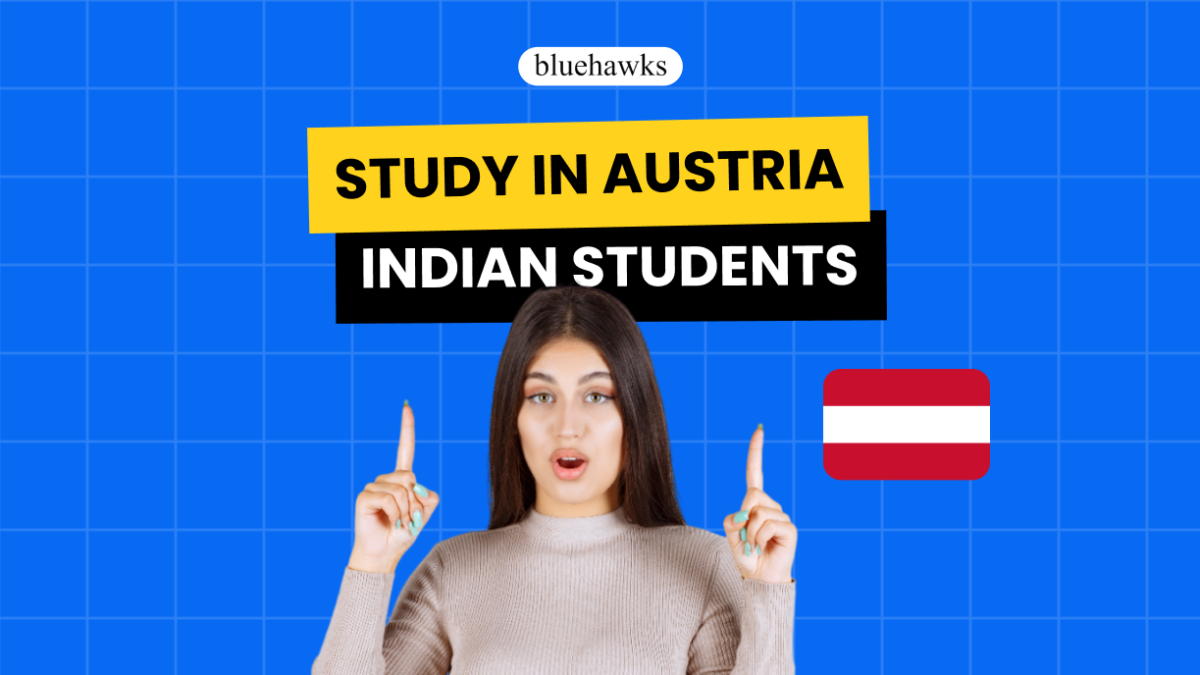Can Indian students study in Austria?

Can Indian students study in Austria?
Estimated reading time: 8 minutes
In recent years, Austria has emerged as an increasingly popular destination for Indian students seeking quality higher education. Known for its picturesque landscapes, rich cultural heritage, and world-class universities, Austria offers a unique and enriching study experience. The country’s higher education system is highly respected, with six universities ranked in the QS Top 500 as of 2024. Indian students are particularly drawn to Austria’s affordable tuition fees, safe and welcoming environment.
Table of contents
- Can Indian students study in Austria?
- Why Study in Austria?
- Austrian Higher Education System
- Top Universities in Austria
- Entry Requirements and Application Process
- Intakes and Application Deadlines
- Popular Programs and Tuition Fees
- Cost of Living in Austria
- Student Visa Requirements
- Scholarships and Financial Aid
- Work and Career Opportunities
- Conclusion
- Ready to take the next step?
- Frequently Asked Questions
The growing appeal of Austrian universities is reflected in the rising number of Indian students choosing to pursue their academic dreams in this central European country. With over 5,000 Indian students currently enrolled, Austria has become a favored destination for those looking to combine academic excellence with cultural exploration. From comprehensive undergraduate programs to specialized master’s courses, Austrian universities provide a wide array of options tailored to meet diverse academic interests and career aspirations.
Why Study in Austria?
Affordable Tuition Fees: Public universities in Austria charge relatively low tuition fees compared to many other European countries, making higher education more accessible and affordable for Indian students. The average tuition fees for bachelor’s courses range from approximately INR 1L to INR 2L per year.
Quality Education and Research: Austria is committed to academic excellence, cutting-edge research, and innovative teaching methodologies. Students receive high-quality education that prepares them for success in their chosen fields.
Rich Cultural Heritage: Austria offers a unique cultural experience, combining history, art, music, and natural beauty, providing an enriching environment for personal growth and exploration.
Safe and Welcoming Environment: Known for its safety, political stability, and welcoming attitude towards international students, Austria creates a comfortable and supportive environment for Indian students.
Austrian Higher Education System
Austria’s higher education system is highly respected and follows the Bologna Process, ensuring compatibility with European standards and facilitating student mobility. There are three types of universities in Austria:
- Public Universities: These offer a wide range of bachelor’s and master’s programs across various disciplines, including medicine, engineering, and business. Notable public universities include the University of Vienna, TU Wien, and the University of Innsbruck.
- Private Universities: These are relatively small but offer specialized programs in business, management, and applied sciences. Notable private universities include Danube Private University, Johannes Kepler University Linz, and Salzburg University of Applied Sciences.
- Universities of Applied Sciences (Fachhochschulen): These institutions focus on providing vocationally oriented programs, combining theoretical knowledge with practical training and industry collaboration. Some notable universities include the University of Applied Sciences Technikum, Vienna, Lauder Business School, Vienna, and the University of Applied Sciences, Upper Austria.
Top Universities in Austria
Austria boasts several prestigious universities known for their academic excellence and diverse program offerings. Here are the top five universities to consider:
| University Name | QS World University Rankings 2024 | Average Annual Tuition Fees (INR) | Official Website |
|---|---|---|---|
| University of Vienna | 130 | 1-13 Lakhs | https://www.univie.ac.at/ |
| TU Wien (Vienna University of Technology) | 184 | 1-13 Lakhs | https://www.tuwien.at/ |
| University of Innsbruck | 362 | 1-13 Lakhs | https://www.uibk.ac.at/ |
| Vienna University of Economics and Business (WU) | 57 | 1-13 Lakhs | https://www.wu.ac.at/ |
| University of Graz | 661 | 1-13 Lakhs | https://www.uni-graz.at/ |
The University of Vienna Established in 1365, the University of Vienna is the oldest and one of the most prestigious universities in Austria. It offers a diverse range of programs across various disciplines, including humanities, social sciences, and natural sciences.
TU Wien (Vienna University of Technology) Founded in 1815, TU Wien is Austria’s largest institution for research and education in technology and natural sciences. It offers a comprehensive range of programs in engineering, computer science, natural sciences, and mathematics.
The University of Innsbruck Founded in 1669, the University of Innsbruck is known for its academic excellence and picturesque Alpine setting. It offers a diverse range of programs across various disciplines, including medicine, law, economics, and engineering.
Vienna University of Economics and Business (WU) Established in 1898, WU is one of Europe’s leading business universities, renowned for its excellence in research and education in economics, business administration, and business law.
The University of Graz Founded in 1585, the University of Graz is known for its comprehensive academic offerings and vibrant research environment. It offers a diverse array of undergraduate, master’s, and doctoral programs across various disciplines.
Entry Requirements and Application Process
To study in Austria as an Indian student, you’ll need to meet certain academic and language requirements. The application process involves submitting various documents and following specific deadlines.
Academic Requirements:
- Bachelor’s Programs: Higher Secondary School Certificate (10+2) from an accredited Indian board or its equivalent, with a minimum GPA score of 3. Entrance exam scores if applicable.
- Master’s Programs: Bachelor’s degree in a relevant field from an accredited university with minimum GPA or percentage requirements (varies by university).
Language Proficiency Requirements:
- Most programs require proficiency in either English or German. Common language requirements include:
Application Process:
- Completed application form
- Academic transcripts and degree certificates
- Language proficiency test scores
- Statement of purpose/motivation letter
- Curriculum Vitae (CV) or resume
- Passport copy
- Application fee (if applicable)
- Additional forms such as registration, statistics, student identification, and continuation forms
Intakes and Application Deadlines
In Austria, universities typically follow a two-semester system: the winter semester (Wintersemester) and the summer semester (Sommersemester). Here’s an overview of the typical intakes for international students in Austria in 2024:
| Semester | Application Period | Semester Start |
|---|---|---|
| Winter Semester | May/June – September/October | October/November |
| Summer Semester | November/December – February/March | March/April |
Popular Programs and Tuition Fees
Austrian universities offer a wide range of high-quality bachelor’s and master’s programs. Here are some popular programs and their approximate annual tuition fees:
Top Bachelor’s Programs:
| Program | Average Annual Tuition Fees (INR) |
|---|---|
| Bachelor of Science in Mechanical Engineering | 5L – 8L |
| Bachelor of Business Administration | 6L – 10L |
| Bachelor of Computer Science | 5L – 9L |
| Bachelor of Arts in Psychology | 4L – 7L |
| Bachelor of Fine Arts | 6L – 11L |
Top Master’s Programs:
| Program | Average Annual Tuition Fees (INR) |
|---|---|
| Master of Science in Engineering Management | 7L – 11L |
| Master of Business Administration (MBA) | 8L – 13L |
| Master of Science in Data Science | 6L – 10L |
| Master of Arts in Graphic Design | 5L – 9L |
| Master of Science in Environmental Sciences | 6L – 10L |
Cost of Living in Austria
The cost of living in Austria can vary based on the city and individual lifestyle. On average, students should budget around INR 9L to INR 12L per year for expenses such as accommodation, food, transportation, and other living costs.
| Expense | Estimated Annual Cost (INR) |
|---|---|
| Accommodation | 3L – 5L |
| Food | 2L – 3L |
| Transportation | 50,000 |
| Other Expenses (Utilities, Books, etc.) | 2L |
| Total | 9L – 12L |
Student Visa Requirements
Non-EU/EEA students, including Indian students, need to apply for a student visa (Residency Permit for Students) to study in Austria. The process involves submitting various documents to the Austrian embassy or consulate in India.
Requirements:
- Valid passport
- Admission letter from an Austrian university
- Proof of sufficient financial means (minimum of INR 9L for the first year)
- Health insurance coverage
- Proof of accommodation in Austria
- Police clearance certificate
- Student visa application fee (INR 12,000 as of 2023)
Scholarships and Financial Aid
Austria offers several scholarship options for Indian students, making it an affordable study destination.
OeAD Scholarships:
- OeAD Scholarships for Master’s and PhD Programs: Covers up to 100% of tuition fees and provides accommodation costs.
- OeAD Scholarships for Short-Term Research Stays: Provides financial support for research stays of 1-3 months.
University-Specific Scholarships:
- The University of Vienna Scholarships: Offers various merit-based and need-based scholarships for international students.
- TU Wien Scholarships: Provides scholarships for master’s and doctoral programs, covering tuition fees and living expenses.
Work and Career Opportunities
Part-Time Work Opportunities:
- International students are allowed to work up to 20 hours per week during the semester and full-time during semester breaks. Common part-time jobs include internships, research assistant positions, and jobs in the service industry. The average part-time salary is around INR 6,000 per month.
Post-Study Work Opportunities:
- After completing their studies, international graduates can apply for a “Red-White-Red Card,” which allows them to stay in Austria for up to 12 months to search for a job. After finding a job related to their field of study, they can apply for a work permit to continue living and working in Austria.
Conclusion
Studying in Austria offers Indian students a unique opportunity to receive a high-quality education while experiencing the country’s rich cultural heritage and beautiful landscapes. With affordable tuition fees, various scholarship options, and a welcoming environment for international students, Austria stands out as an excellent destination for pursuing higher education.
Ready to take the next step?
At bluehawks, we understand that navigating the complexities of international education can be overwhelming. That’s why our expert team is here to support you every step of the way.
From personalized consultations to comprehensive test preparation resources, we offer a range of services designed to help you achieve your academic goals. Whether you’re facing challenges with language proficiency or need guidance on selecting the right university, our team is dedicated to providing you with invaluable advice and assistance.
Don’t let language barriers or financial concerns hold you back from pursuing your dreams. Contact bluehawks today and let us help you chart your course to a brighter, more fulfilling future. Together, we can turn your aspirations of studying in the Austria into a reality!
Frequently Asked Questions
Austria boasts several top-ranked universities, including the University of Vienna, TU Wien, and the University of Innsbruck, all renowned for their academic excellence across various disciplines.
Tuition fees in Austria are relatively affordable compared to other European countries, ranging from approximately INR 1 lakh to INR 10 lakhs per year, depending on the course and university.
Yes, there are various scholarships available, such as the OeAD scholarships, which can cover tuition fees, living expenses, and even travel costs, making studying in Austria more financially feasible for international students.



